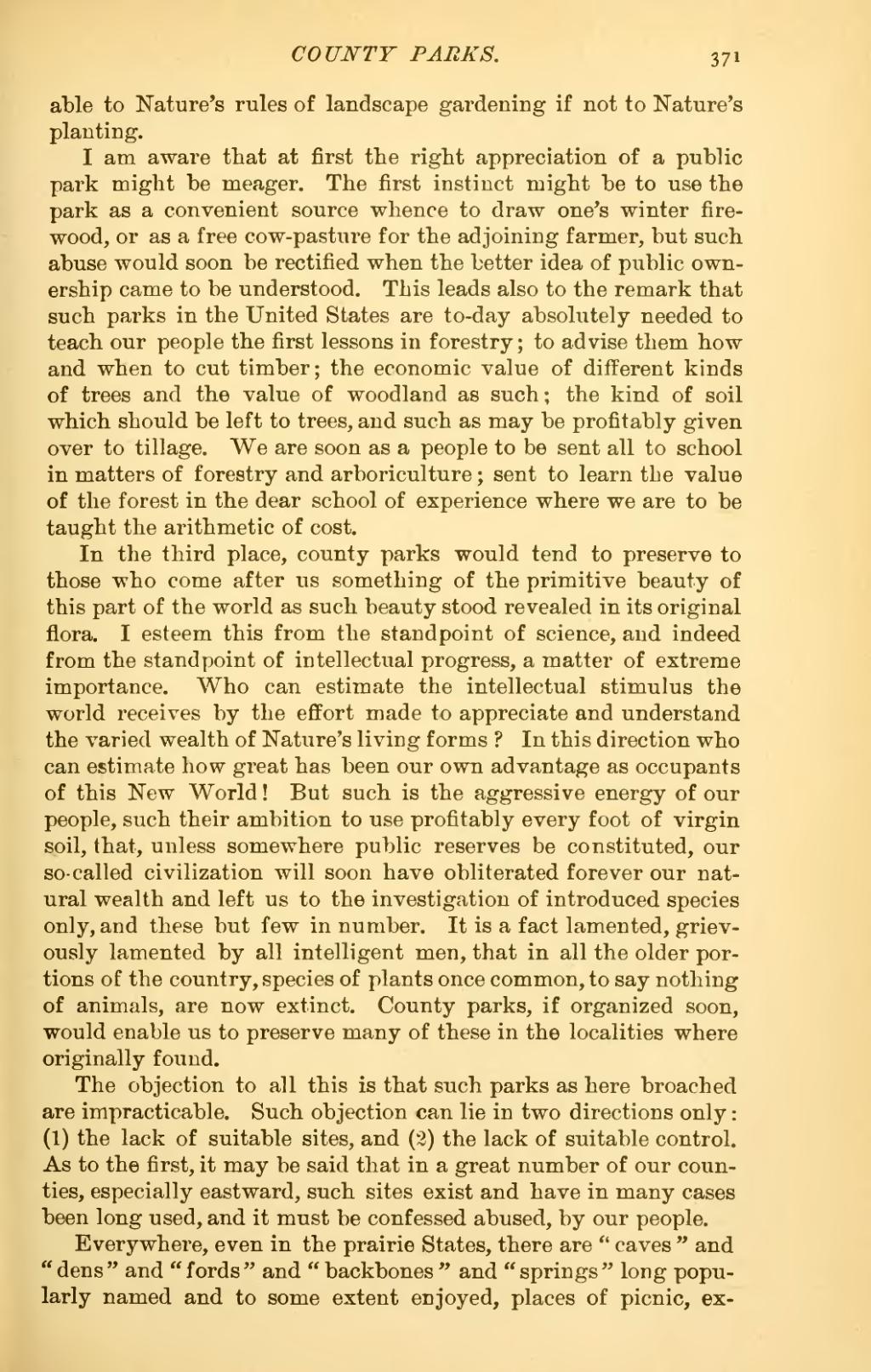able to Nature's rules of landscape gardening if not to Nature's planting.
I am aware that at first the right appreciation of a public park might be meager. The first instinct might be to use the park as a convenient source whence to draw one's winter firewood, or as a free cow-pasture for the adjoining farmer, but such abuse would soon be rectified when the better idea of public ownership came to be understood. This leads also to the remark that such parks in the United States are to-day absolutely needed to teach our people the first lessons in forestry; to advise them how and when to cut timber; the economic value of different kinds of trees and the value of woodland as such; the kind of soil which should be left to trees, and such as may be profitably given over to tillage. We are soon as a people to be sent all to school in matters of forestry and arboriculture; sent to learn the value of the forest in the dear school of experience where we are to be taught the arithmetic of cost.
In the third place, county parks would tend to preserve to those who come after us something of the primitive beauty of this part of the world as such beauty stood revealed in its original flora. I esteem this from the standpoint of science, and indeed from the standpoint of intellectual progress, a matter of extreme importance. Who can estimate the intellectual stimulus the world receives by the effort made to appreciate and understand the varied wealth of Nature's living forms? In this direction who can estimate how great has been our own advantage as occupants of this New World! But such is the aggressive energy of our people, such their ambition to use profitably every foot of virgin soil, that, unless somewhere public reserves be constituted, our so-called civilization will soon have obliterated forever our natural wealth and left us to the investigation of introduced species only, and these but few in number. It is a fact lamented, grievously lamented by all intelligent men, that in all the older portions of the country, species of plants once common, to say nothing of animals, are now extinct. County parks, if organized soon, would enable us to preserve many of these in the localities where originally found.
The objection to all this is that such parks as here broached are impracticable. Such objection can lie in two directions only: (1) the lack of suitable sites, and (2) the lack of suitable control. As to the first, it may be said that in a great number of our counties, especially eastward, such sites exist and have in many cases been long used, and it must be confessed abused, by our people.
Everywhere, even in the prairie States, there are "caves" and "dens" and "fords" and "backbones" and "springs" long popularly named and to some extent enjoyed, places of picnic, ex-
